Best World Building Tools for 2026
Explore the ultimate world building tools for writers, DMs, and storytellers alike in 2026. Whether you’d like a powerful application like World Anvil, options with flexibility, or world builder software, we will take you through the best worldbuilding software options to develop, organize, and experience your fiction universes.
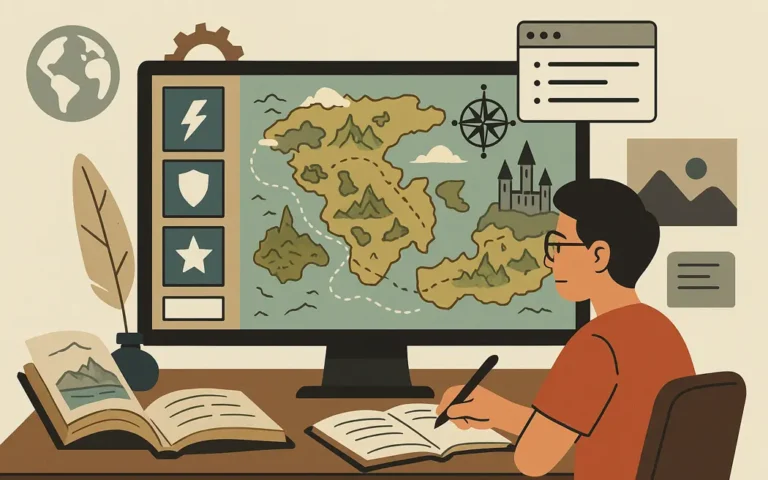
world building tools
Why Is World Building Important for Creators?
Worldbuilding is the basis of every wonderful story or campaign. Whether you are developing a novel, planning your next D&D session, or designing an all-new digital universe, it is when you find a useful structure that your ideas come to life. This is where world building tools can be invaluable to contributors.
As you can imagine, when writers and DMs start to develop new lands, characters, or timelines, it can rapidly become complicated. Writers might start with a simple map and limited characters, but eventually, the project can grow into this beast that involves religions, politics, geography, and magical systems. Once you have landscaped a world and system like this, that is when you realize how invaluable the use of world builder software can be. Instead of sifting through old notebooks or messy documents, you can keep everything organized in one space and complete.
World Building Tools
And if you’re building campaigns, you already know how wild it gets behind the DM screen. You have NPCs appearing out of nowhere, players pursuing side quests you never planned, and timelines changing from session to session. With DnD worldbuilding tools, you can keep your sanity. They can organize all your encounters, track locations, and establish story arcs so you can focus on engaging your players and not flipping through all the unsorted papers.
For authors, the struggle resembles it, but it is a little different. A novel world expands with every chapter you add, and it’s easy to forget what you named a city or how your rules for magic work. That is why world building software for writers is now essential. These platforms turn your world into a living archive you can continually expand and edit while never losing control.
In the end, worldbuilding isn’t just creative. It is strategic, and with the right toolkit, the process is smoother, clearer, and a whole lot more fun too.
Review of the Most Popular World Building Tools
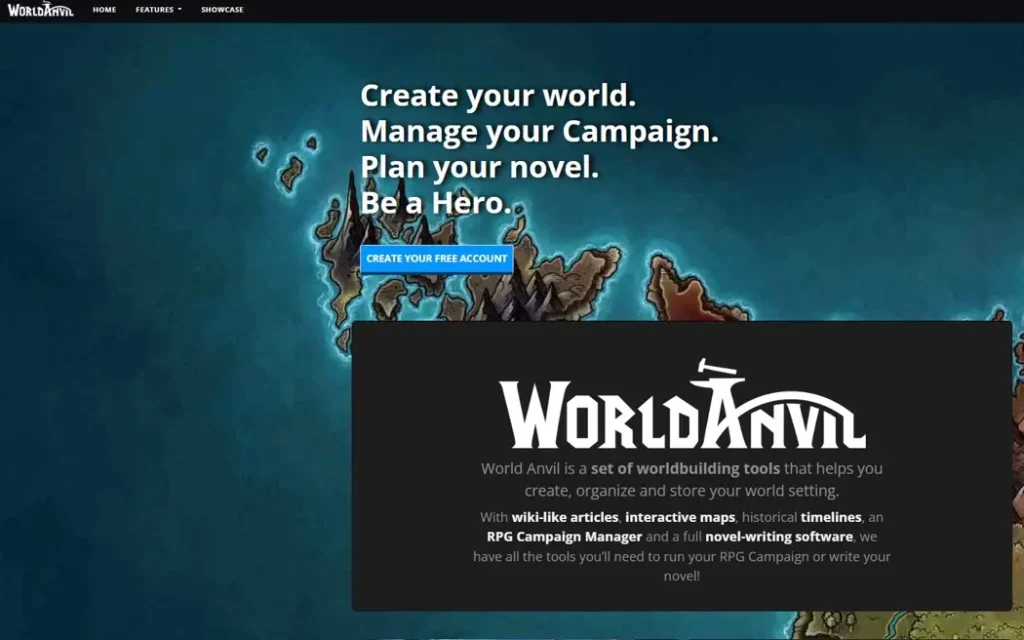
There are varying degrees of worldbuilding software in today’s app market. Some include almost every feature you can imagine, while others are just note-taking systems, and still others are somewhere in between. Let’s take a look at the most popular ones on the market today and examine what each one has to offer.
Popular World Building Tools: A Summary
| Tool | Key features | Strengths | Considerations |
| World Anvil | Pages in the style of a wiki, timelines, maps, and RPG integrations. | Manages worlds of any size; does limit scale and is not great for lore. | Can be overwhelming; there is a learning curve. |
| Notion | Databases, galleries, and boards are all completely customizable. | Flexible and modern; easy to adapt as your world grows. | Building structure from scratch. |
| Campfire | Character, culture, map, and language modular organization. | Visually appealing and easy to follow. | Less complex functionality than full platforms. |
| Inkarnate | Cloud-based map development. | Intuitive and quick, and aesthetically pleasing maps. | Limited artistic control for the advanced artist. |
| Wonderdraft | Desktop map creation tool. | Greater artistic freedom; detailed maps. | Not cloud-based; may require more setup. |
| Obsidian | Knowledge graph, markdown notes, local storage. | Excellent for visualizing connections and deep lore. | Focused on text-based organization; less visual styling. |
Software vs. Manual Creation: Why Digital World Building Tools Win

Many creators initiate new projects with a notebook, sticky notes, or long text files. It works until it doesn’t. Eventually, as your universe evolves, you quickly realize that it’s become a maze of manual notes that is no longer manageable. Enter the modern-day tools that take occasion and organize and make it all different. Again, there’s something charming about a hand drawing, but a digital system gives you a clarity and consistency that is hard to match.
Faster Organization and Clearer Structure
When all ideas compete for your attention, digital platforms help you sift through the noise. You can attach people to places, mark events on timelines, and use visuals to make your world easier to explore. Manual methods rarely provide that degree of organization unless you put in time to format all the connections. With software, it can all be done with the click of a few buttons.
Visual Maps and Tools That Bring Worlds to Life
Another significant benefit is how simple it is to work with visual elements. Digital map editors, relationship diagrams, and timeline tools give your world the depth that paper can’t. You can easily update maps without having to redraw them, reposition plot threads, or redesign a kingdom’s history using a few pull and drag movements.
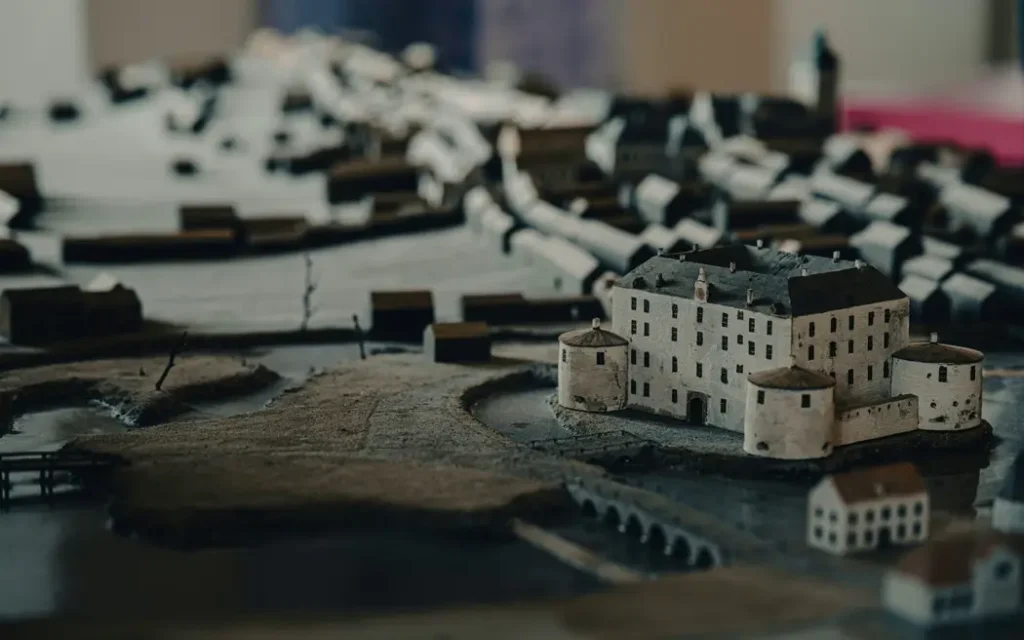
Collaboration Becomes Effortless
When you’re building a world in collaboration with co-authors or a campaign with players that want to reference the lore, sharing it is easy if it’s all on software. You can work together in real time, leave comments, and track changes. Good luck doing that on dozens of handwritten pages. It would be an absolute nightmare.
Reducing Overwhelm and Keeping Focus
Those who create independently also enjoy the mental clarity that worldbuilding digitally can confer. And the use of templates means you are not trying to reinvent the wheel. Tags, folders, and simple search functionality will help you find anything in an instant. This is a huge reason worldbuilding tools for writers have grown rapidly in popularity. They do the heavy lifting of staying focused only on your writing rather than having to keep track of your notes that may be all over the place.
Ultimately, software will not replace a creator’s imagination. Software can just help support creativity by offering room for mental breathing space, using technology to manage the load of ideas through internet storage.
The Best World Builder Software Alternatives for 2026
The worldbuilding community continues to expand, leading to new tools to fit a variety of creative needs. Some writers want tools that are straightforward and simple, and DMs might want something that is a bit more dynamic and RPG-friendly. In 2026, we will see a fresh wave of platforms that compete against the established giants in worldbuilding in the storytelling industry. For writers looking for World Anvil alternatives or simply to improve their process, these tools are worth checking out.
Campfire Write: A Clean, Modern Experience
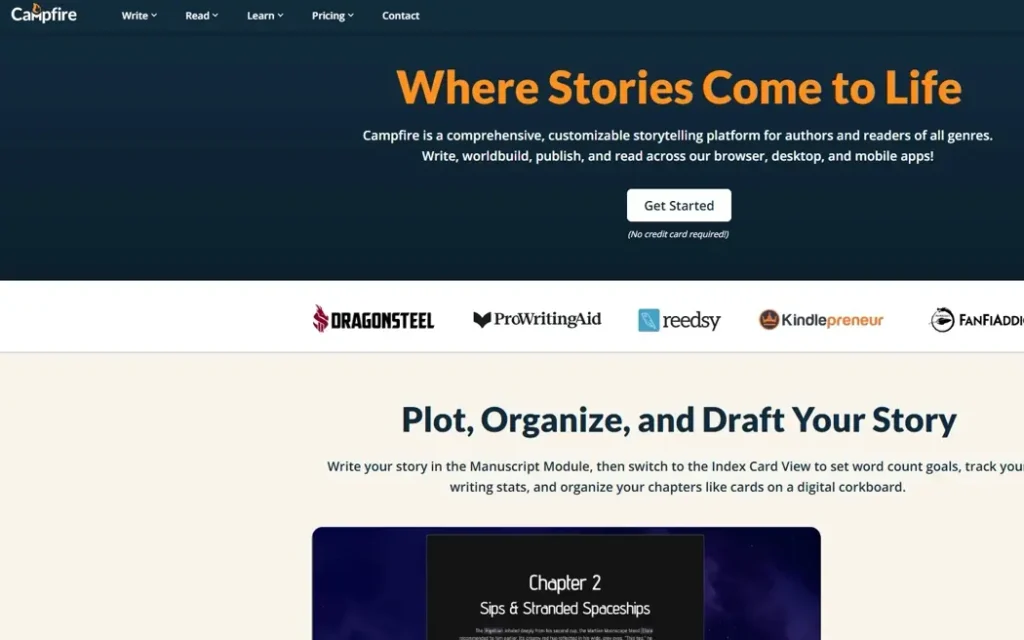
This tool has emerged as a favorite among creators seeking organization without menus piled on menus. The modular approach this tool has keeps everything neat and easy to navigate. We believe many writers prefer it, as most platforms let them down in the organizational sense. Or presumably based on my own experience, when there is a lighter tool with visuals that feels more approachable, it just floats to the top. If you like neatly organized dashboards and minimal confusion, Campfire Write is about as good as it gets.
LegendKeeper: Collaborative Worldbuilding Done Right
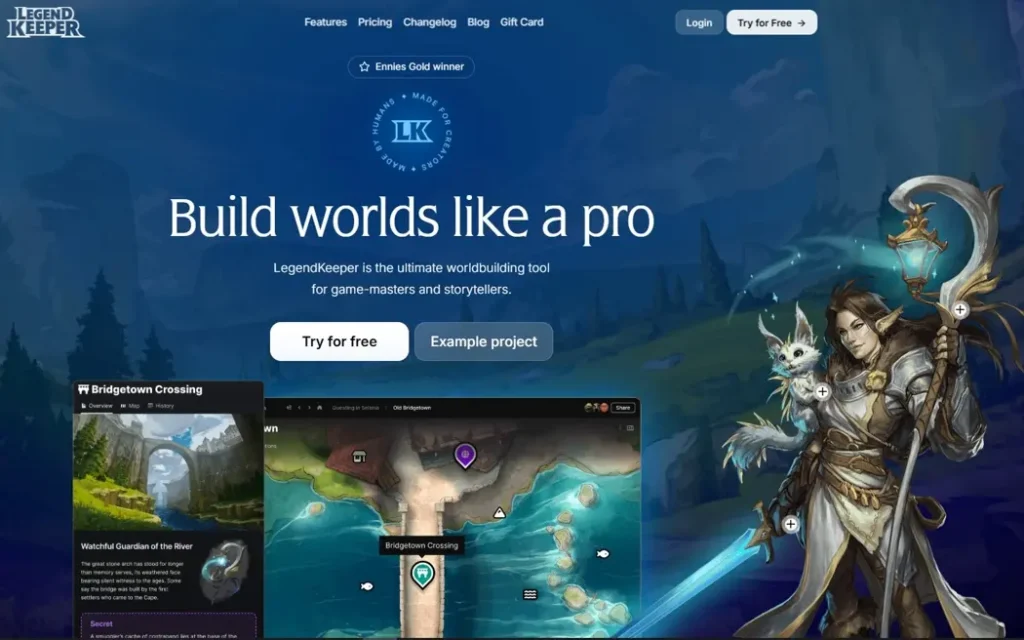
This platform provides you with wiki-like ability that’s also integrated with interactive maps. It’s a perfect vibe for teams or RPG groups that want to share details related to the world in one private space. Navigation is fluid, linking is easy, and the ‘feel’ is a bit more pleasing than some of the heavier lo-fi tools out there. In other words, it’s very useful for any creators who appreciate a little design or planning collaboration with a nice UI.
Kanka: Lightweight and RPG-Focused
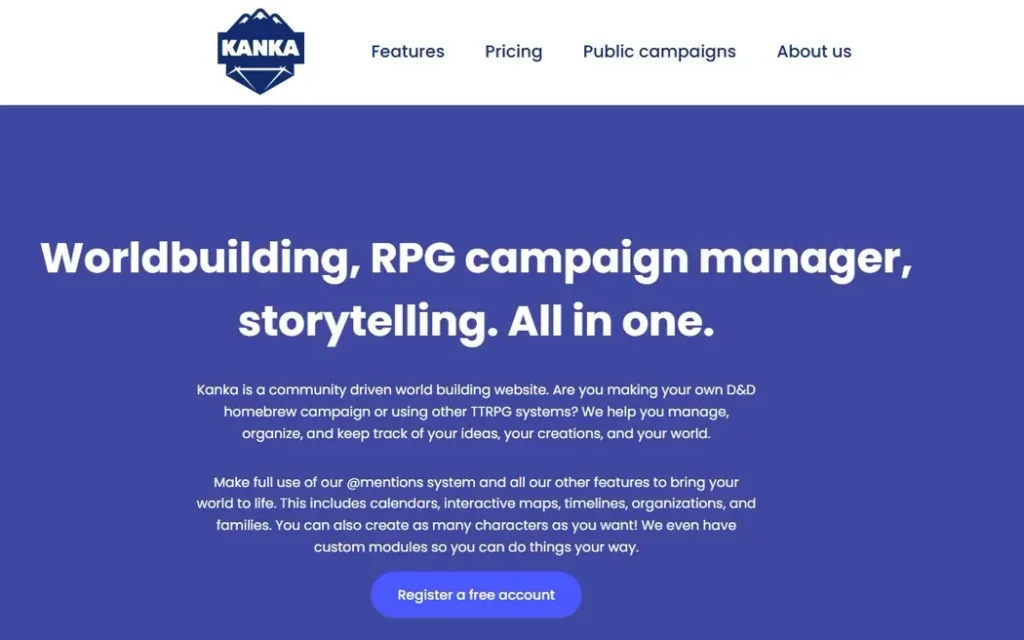
The Kanka web-based app is an excellent companion system for RPGs. It manages your campaigns, characters, timelines, groups, and calendars in an intuitive way, leading to robust uptake by DMs who wish to speed up their prep sessions. Given it is modular and has a low-entry setup to use, it is often regarded amongst players as one of the better worldbuilder software options for continuing campaigns.
Notion + AI: Flexible and Creator-Friendly
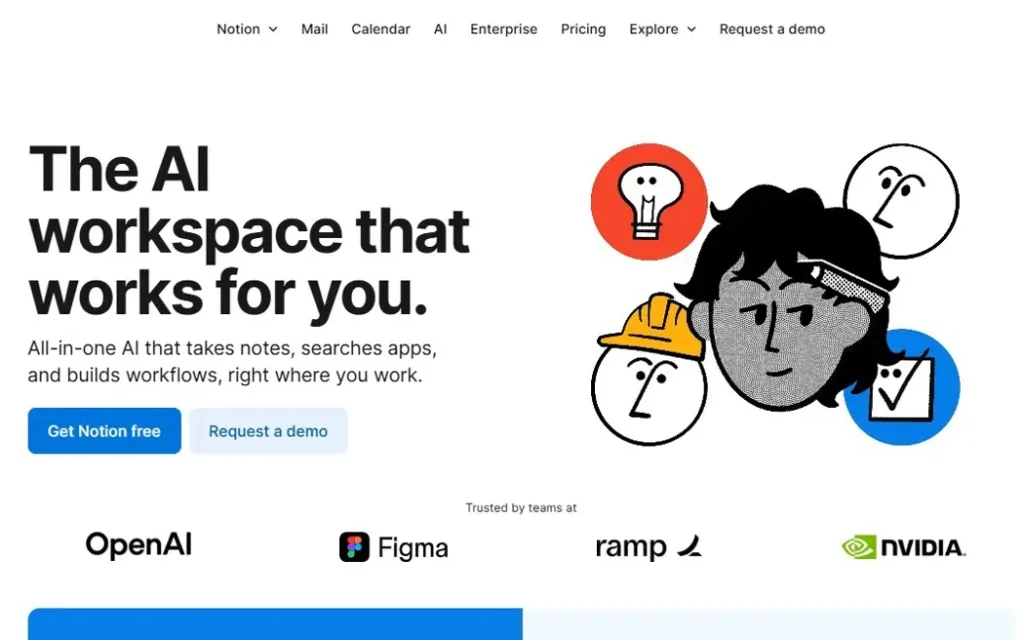
This service is still going strong for creative writers willing to have total control over their workspace. With the AI features, you can generate lore ideas, summaries of the world, characters’ backgrounds, and more. Notion was not created specifically for fantasy or sci-fi; however, the flexibility is unmatched. If you are someone who enjoys customizing a template or building your systems your way, Notion is still one of the most flexible worldbuilding software programs on the market.
If you are looking for an alternative that fits your workflow, there are more systems coming out in 2026 than ever before.
What Is Next? Create and Monetize Your Own Project
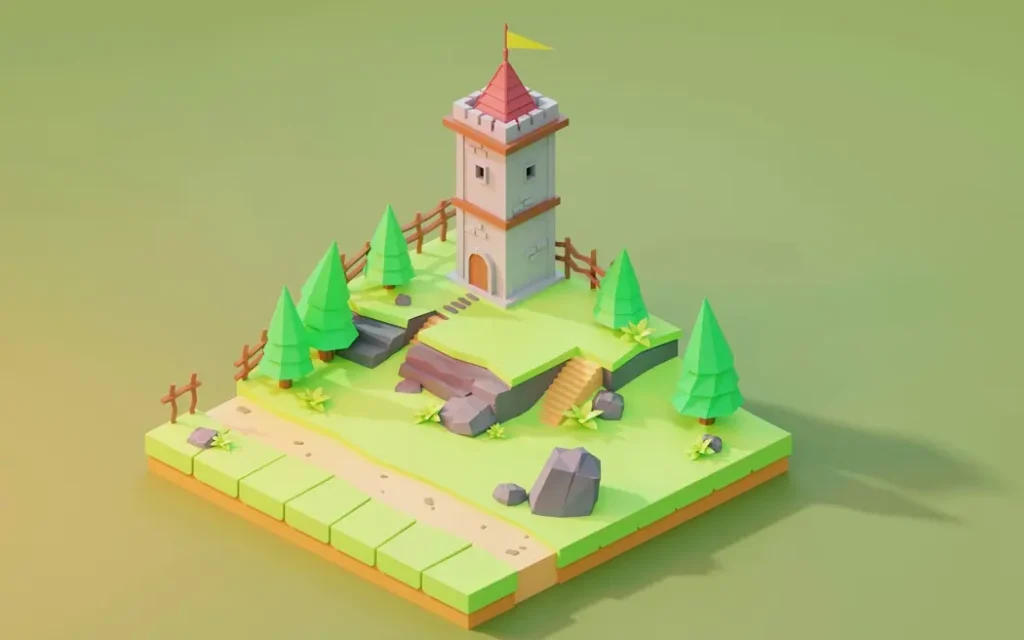
Once you start to see your world take shape, you might notice something interesting: people want to know more. Your readers may be asking you for backstories for your characters, or your players want maps, lore drops, or your session notes. So, your fictional universe becomes something more than just a creative hobby. It becomes an asset that is actually worth something.
And this is where a lot of creators run into problems. You can keep your world under multiple tools, or you can take a leap and turn your world into a purpose-built platform. Something that feels professional and organized and grows with you.
If you are an author, you could share bonus chapters, or if you are a DM, you could provide premium campaign materials. Monetization becomes a natural extension of your work.
This brings us directly to a solution that was built with creators in mind who want ownership, flexibility, and a platform that can grow with your imagination.
Scrile Connect: Build, Launch, and Monetize Your Own Creative Platform

When you are ready to fully own your world and share it with the audience, Scrile Connect gives you a way of doing that without building a single line of code. It is an out-of-the-box engineering solution for creators to have ownership of their work, the ability to customize their online space, and the ability to monetize their creations. If you’ve ever wanted your favorite worldbuilding tools for writers to come with community and monetization tools built in, this is the kind of solution that closes that gap.
A Platform Designed for Modern Creators
Scrile Connect lets you create a branded membership platform to share your lore, maps, bonus chapters, private campaign, or behind-the-scenes worldbuilding updates. You can create subscription tiers, offer exclusive content, or even create a premium “world hub” for your fans. Best of all, you control everything. From design to access to your content.
Writers can share world entries, character sheets, or serialized stories. DMs can share campaign notes, session recaps, and encounter packs or make maps available for players. And since your audience operates directly on your platform, there are no algorithms or third-party restrictions to deal with.

Turn Your World Into a Real Business With Scrile Connect
Turn attention from the fans, curious newcomers, or loyal players in your universe into income by offering paid memberships, access to exclusive spaces, or bundled, specially curated premium content. With Scrile Connect, moving from “creative idea” to “sustainable project” is much easier.
Start building and monetizing your universe with Scrile Connect. Create a space where your creativity can truly flourish. Contact our team to learn more about our ready-made solution for your prosperous worldbuilding software project.
FAQ: World Building Tools
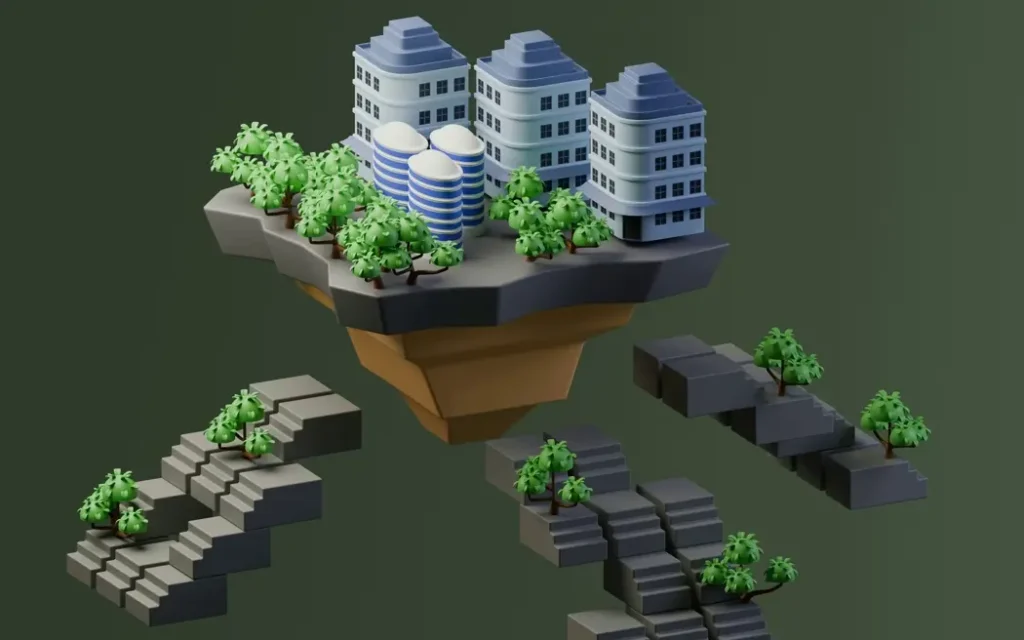
What is the best worldbuilding tool?
The “best” tool is subjective and largely depends on your needs and workflow. If you’re an author or DM who loves organization at a detailed level and a wiki-style approach, World Anvil is a powerhouse, with great free and paid plans. And if you want a flexible, customizable experience for your worldbuilding, then Notion gives you the power to completely create your own structured universe. If you’re a writer who cares more about the narrative depth than the world depth, Scrivener is a great tool. Google Docs & Sheets are useful, surprisingly simple but effective alternatives. If you’re a map-focused worldbuilder, Fantasia Archive and Inkarnate are great tools.
What is the worldbuilding methodology?
Worldbuilding is more than simply brainstorming. It is a structured process. A good starting point will be a spatially explicit model. This means creating a detailed visual map. A current detailed visual map of your world might be continents, star systems, towns, or a building. Mapping your universe means you can consider how your characters, cultures, and events relate directly to physical space.
Worldbuilding methodology goes beyond geography. It can also be organizing societies, magic systems, languages, economies, and histories. Worldbuilding tools, or worldbuilder software, take some of the work out of linking all these things together. Scrile Connect can facilitate socially documenting your world and even allows you to share that with fans or collaborators socially. So, it socializes the worldbuilding methodology.
What are the 4 C’s of worldbuilding?
The 4 C’s outline a great foundation for rich gaming universes:
- Creative. Unleash your imagination. A unique culture, a surprising invention, or a quirky people will leave a lasting impression on players.
- Complete. Develop all aspects of your universe, including geography, political structure, history, and characters. A comprehensive universe feels ‘real’ to players.
- Consistent. Rules matter. If your world has magic, technology, or historical narrative, these should also follow the rules you’ve established to suspend disbelief.
- Compelling. Every city and every character or quest should provoke some level of interest or investment with your players.
Modern worldbuilding software and tools effectively address the 4Cs and can make your world both structurally sound and compelling.